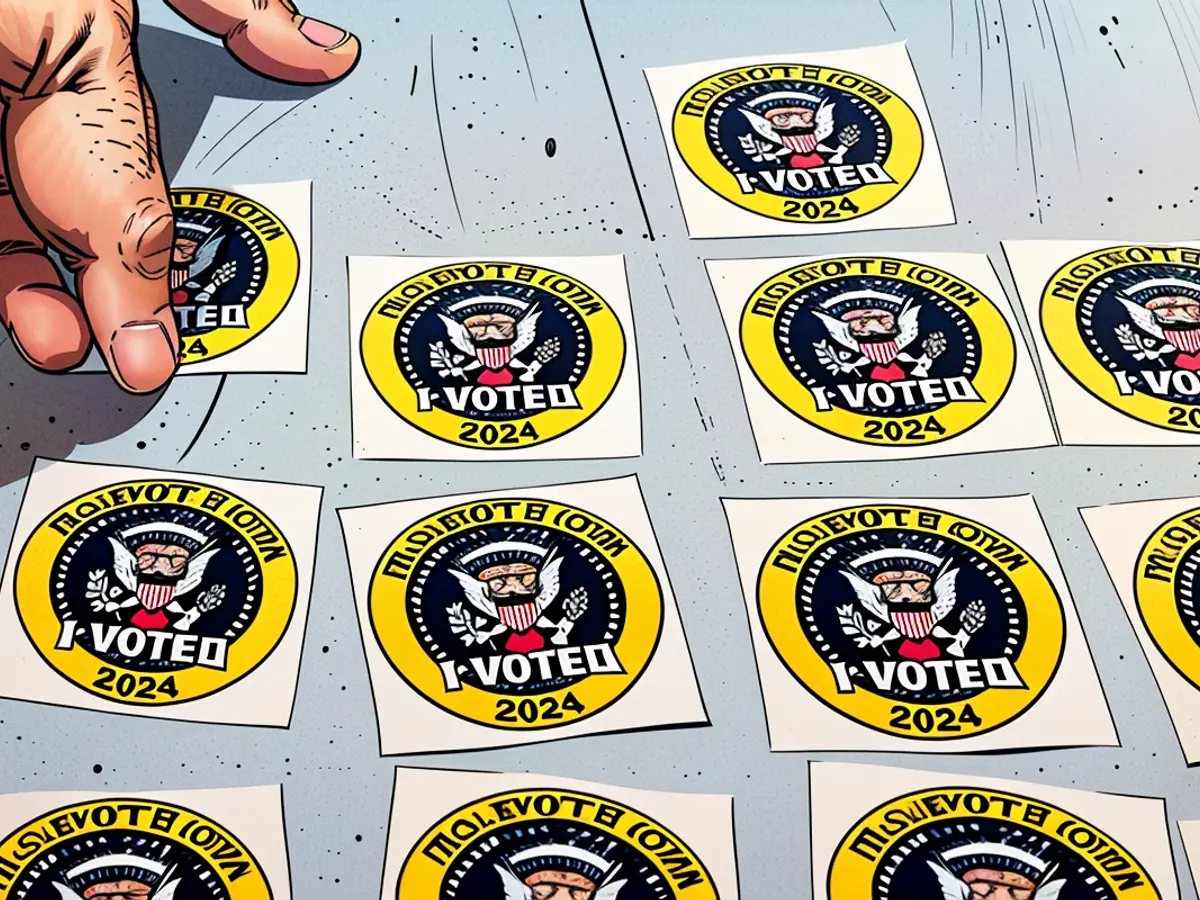The pre-election dispute in Virginia city regarding certification highlights the current role of local protocols as contentious focal points.
The ongoing disagreement between Republican officials on the Waynesboro Board of Elections, who are pushing for a manual count of ballots before confirming the 2024 results, is just another instance of how local certification procedures have turned into a breeding ground for unsubstantiated election fraud allegations since former President Donald Trump's attempts to contest his 2020 defeat.
Notably, the local officials in Waynesboro are threatening to withhold formal confirmation of the results, potentially causing delays in certifying the entire state's vote, even before the final ballot has been cast.
Two key Republican figures on the Waynesboro Board of Elections, Chair Curtis Lilly and Vice Chair Scott Mares, initiated legal action against state election officials on October 4 in the Waynesboro Circuit Court. They accused the voting machines used in Virginia of being unverifiable and susceptible to manipulation.
In retaliation, five Waynesboro voters filed their own lawsuit against the local officials, urging the Circuit Court to safeguard their rights to have their votes tallied and ratified, as sanctioned by the Virginia constitution. The voters accused the GOP officials of attempting to cultivate mistrust in voting machines, the use of which is constitutionally authorized in Virginia.
In their initial lawsuit, the Waynesboro officials asserted that there was no assurance that the voting machine did not connect to the internet or produce results inconsistent with the ballot box. They claimed in affidavits that, due to their inability to vouch for "the correct counting and allocation of votes by voting machines," they would refuse to certify the 2024 election until such time as the legal system permits manual ballot counting.
Lilly and Mares represent two of the three Republican-leaning Waynesboro Board of Elections members in a city where the majority of votes went to Trump in 2020. Waynesboro is approximately 30 miles west of Charlottesville, Virginia.
In the new lawsuit filed by the Waynesboro voters, they cited a news report stating that one of the GOP officials had, apparently, been inspired to file a lawsuit by the lawyer who now represents them. The lawyer, Thomas Ranieri, stated on Tuesday that his clients intended to ensure that every voter's ballot was securely cast and accurately counted, a task they believed could not be accomplished at present.
“This case is not primarily about machines or disenfranchising voters; it is primarily about whether my clients can, in good conscience and under oath, verify the integrity of an election without ensuring that the returns actually reflect the accurate vote count,” Ranieri said in his statement, adding that the officials would comply with the court's decisions but would appeal any decisions with which they disagreed.
The Virginia State Board of Elections declined to respond to CNN's inquiry, and the office of state Attorney General Jason Miyares, a Republican, declined to comment on ongoing litigation.
Despite originating from a rural county in a state not typically regarded as a significant battleground in the presidential race, this dispute highlights how once-unnoticed election administration processes have transformed into focal points in the aftermath of the 2020 election subversion schemes.
During the 2020 election, officials in Wayne County, Michigan, temporarily resisted affirming the results, which encompassed heavily Democratic Detroit, amid Trump's unfounded crusade to claim widespread voter fraud. The officials eventually validated the vote tally.
“Certifying elections have not been a concern in the past. It has historically been a formal procedure marking the conclusion of the vote-counting process,” Lauren Miller Karalunas, a senior counsel at the liberal-leaning Brennan Center for Justice at New York University's law school, told CNN. “But in 2020, that changed when we witnessed refusals to certify the results following the election. This is an escalation of that, where we are observing threats of refusal to certify an election even before the election has occurred.”
Elections held since then have featured similar, albeit less conspicuous, local disputes over confirmation. The refusal by Republican officials in Cochise County, Arizona, to certify the 2022 midterms by the legal deadline resulted in criminal charges, with one of the two charged officials entering a guilty plea this week in the case and the other set to face trial next month.
Conflicts over the confirmation of election results have already become a characteristic of the 2024 election, with battleground Georgia grappling with a growing legal drama over new state election regulations that Democrats argue could allow local officials to delay or prevent altogether the certification of this year's results.
Officials in the key presidential states targeted by Trump's 2020 efforts have been devising strategies to preempt local-level confirmation fights.
The ongoing tape of discord within the Waynesboro Board of Elections, driven by Republican officials advocating for a manual count of ballots before finalizing the 2024 results, mirrors the broader trend of politics being used as a platform to fuel allegations of unsubstantiated election fraud.
In the context of the ongoing court battles, the Waynesboro Board of Elections members, such as Chair Curtis Lilly and Vice Chair Scott Mares, are utilizing politics as a lever to challenge the validity of the voting machines, fueling mistrust among voters and potentially delaying the formal confirmation of election results.








